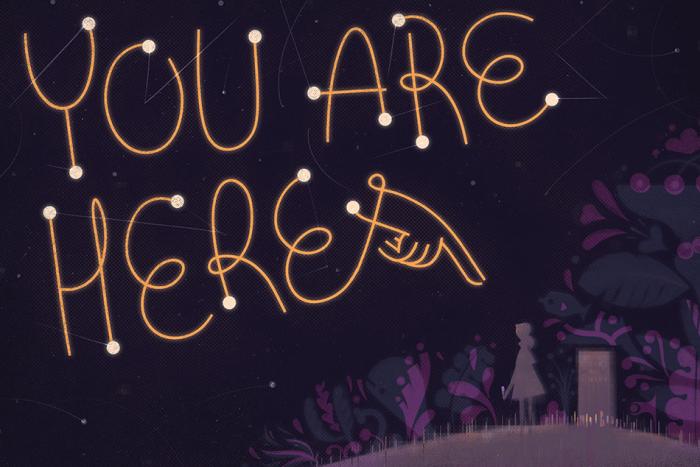On more than one occasion, as I've shuffled my portly, not-quite-a-dadbod down the street, I've found myself rolling over some idea from feminist theory—like, say, whether it's possible to describe power in feminine terms under patriarchy—only to find myself distracted by some hot blonde.
Recognizing the queasy absurdity of the situation—a self-proclaimed feminist reflexively objectifying some disembodied woman!—I descend into a fit of self-loathing. Yet, when it comes to masculinity, or what it means to be a good man, perhaps self-hatred isn't such a bad idea.
We live, after all, in the era of Dadbod Masculinity. Although the dadbod as a concept seems to have percolated its way through the zeitgeist as a celebration of inviting, dad-like bodies such as Jason Segel's, its most fascinating aspect is actually found in its contradiction. Mackenzie Pearson, credited with popularizing the term, suggests that "the dad bod says, 'I go to the gym occasionally, but I also drink heavily on the weekends and enjoy eating eight slices of pizza at a time.'" The dadbod is not only softness, but hardness at its edges, too.
The dadbod is not simply the hint of a belly, then, or the creeping of age, or even just the perfect symbol of the enormous leeway given to men's bodies that is denied women's: it's two warring versions of manhood at home in the same frame. It's a man, says Pearson, who "ended up with a little bit of squish on top of his muscle." It's biceps and a beer gut, the ripple of muscle in a forearm and ripple of flab at the love handles. It is an idea of a man that is, out of necessity, always at war with itself, a perfect description of the demands of contemporary masculinity: be masculine, but also … don't.
Taking this turn of events to construct a self-pitying "war on manhood" is precisely what has energized certain men to try to reclaim the clarity of lost manliness. Men's rights, anti-feminism, Gamergate—these are all reactions against a deconstructed, changing gender identity. But this is precisely the wrong approach. Self-hate is not a vice for man. Quite to the contrary, in the twenty-first century, the only good man is a self-hating man.
*
To be born a man is to have arrived too late. You enter the modern era as might a wizened calligrapher or a typographer: immersed and saturated in a thing out of its time. It starts innocuously, in those now-worn clichés of gentle, nudging parents telling you that boys don't cry. As you are put into the machine of the educational system, you learn that to have power is to be able to assert it over others.
You emerge into adolescence to find yourself surrounded by images of pliant women, draped over things—a culture saturated in visions of the female body, contorted, somehow always bent or bending over. You want these things, even though you are unsure of how to make the women you know behave like that. You discover the Internet.
You absorb deep lessons from offhand remarks, repeated over and over: what is feminine is less serious. Your opinion as a man is something you must share because "all opinions are equally valid." Years later, you've become an adult, and find yourself wondering what that person meant when she said you were "mansplaining." You felt you were just sharing your knowledge. Your ego is bruised when you learn your new girlfriend earns more than you, or when she refuses to "flip over" just because you wanted her to. You are confused. "I am a feminist," you tell yourself. "How did I end up wanting that?"
By the time you think about being a good man, it is already too late. You will find yourself sitting in the library, reading de Beauvoir for the first time, having your mind blown, and a woman will drop a pencil and bend over to reach it and you take a moment to stare at her ass and drink in the view. You wander home at 3 a.m., drunk, down dark lonely streets, wondering how it is that women have all the power these days.
*
The dadbod is a symptom. Those who desire men are also struck by these contradictions—of recognizing too late that what we want was imprinted on us before we had a chance to object. So now, the unconscious urges that dictate our wants are already shaped by a wish to both manifest and deconstruct the most conventional of masculinities, all while denying women the same freedom to live out the contradictions of fantasy and biology.
But it is just that pre-cognitive nature of desire and the unconscious that makes self-hate such a virtue for men. It isn't actual "self-hatred" either, but rather, a deep skepticism of oneself—a profound mistrust of what it means to be a man. To be a good straight man is to be in a constant state of deprogramming oneself, unlearning, emptying out a vessel that has been filled with toxicity since its creation.
It requires a humility that borders on embarrassment. One must be both retroactive and apologetic, recognizing and correcting mistakes after the fact. It is infuriating. But it is the only way. There are no good men—only men in the process of becoming better. To be a man is to revel in the only honest option: self-hate.
*
Some time in the early nineties, my family went on a picnic. It was one of those late-summer affairs, the day hot and hazy, seeming to stretch on forever. The grownups indulged in gin and tonics, each drink turned just barely light pink by bitters. After a few too many, my dad, to my surprise and delight, let me drive our beat-up grey Mercury Topaz around and around the oval gravel parking lot. I still vividly remember the feeling of power that surged under my foot, amazed at this sudden sense of control, autonomy, maturity.
A bit later, we kids were sitting at a table, I on one side, Avita on the other. I'd had a crush on her for a while, and I recall being particularly enamoured with how feminine her soft, pale skin seemed, alluring and so out of reach. Somehow—who knows how these things happen?—we ended up arm-wrestling. I lost.
I ran up the hill and into the woods, crying, feeling confused and deeply embarrassed. I didn't really understand why. I just knew that it wasn't supposed to go that way, and I was somehow lesser for it. I was just fourteen, but even then it was already too late. I was already a man.






